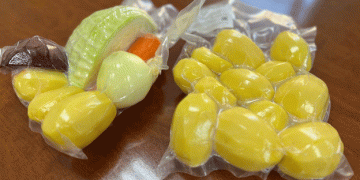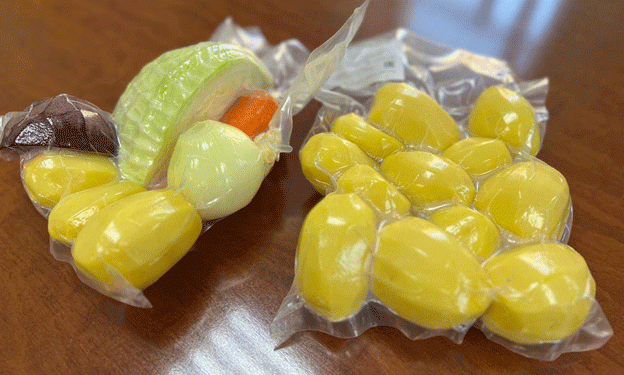In an innovative move for Chita’s agricultural market, vacuum-sealed local vegetables are now available on the shelves, offering both consumers and farmers a unique opportunity. On November 6, the Ministry of Economic Development of the Trans-Baikal Territory announced the introduction of these locally produced, pre-packaged vegetables, thanks to the efforts of entrepreneur Anton Bocharev. This new product is expected to provide convenience and freshness while supporting the region’s agricultural development.
The idea behind vacuum-sealed vegetables is simple yet effective. By removing air and sealing the vegetables in special packaging, they can retain their freshness longer, reducing spoilage and waste. This is particularly important in regions with varying climates, where long-distance transportation of perishable goods can lead to a loss of quality. According to a study by the International Food Policy Research Institute, vacuum sealing can extend the shelf life of vegetables by up to 5 times compared to traditional packaging, reducing food waste in the process.
Anton Bocharev emphasized that these vacuum-sealed vegetable sets could save time for busy consumers. The products come pre-washed and peeled, making them ready to cook straight out of the package. The most popular product is expected to be the “borscht set,” which includes cabbage, beets, carrots, potatoes, onions, and garlic — key ingredients for making the traditional Russian dish borscht. The price for 1 kilogram of this set is affordable, at just 150 rubles, offering both quality and value for money.
This new product line is available in the “Karavan” store chain, where consumers can find not only the borscht set but also pre-peeled garlic, potatoes, and carrots. The availability of these products offers significant potential benefits for local agriculture. According to data from the Russian Ministry of Agriculture, the demand for fresh, convenient food products has been increasing in recent years, particularly in urban areas where busy lifestyles have led to greater interest in time-saving products. This trend highlights the growing importance of adapting agricultural practices to meet consumer preferences for convenience, sustainability, and local sourcing.
Beyond convenience, the initiative also promotes regional agriculture. By offering locally grown and processed vegetables, the project supports small and medium-sized farmers, reducing reliance on imports and encouraging a more sustainable, resilient agricultural ecosystem. As the market for vacuum-sealed vegetables expands, it could potentially serve as a model for other regions in Russia, contributing to the modernization of food production and distribution.
The introduction of locally produced vacuum-sealed vegetables in Chita is a promising step forward for the agricultural industry. This innovative product not only meets consumer demand for convenience but also supports local farmers and promotes sustainability. As consumers increasingly seek fresh, convenient, and locally sourced food, such initiatives have the potential to transform the agricultural landscape across Russia, fostering growth and innovation in the sector.































